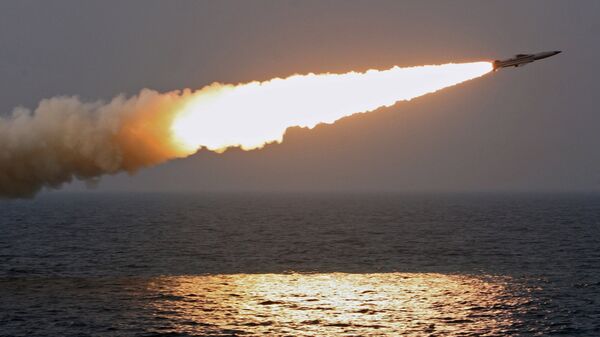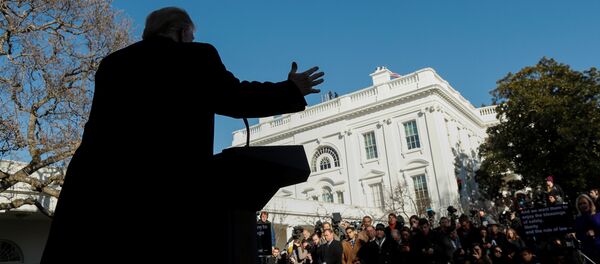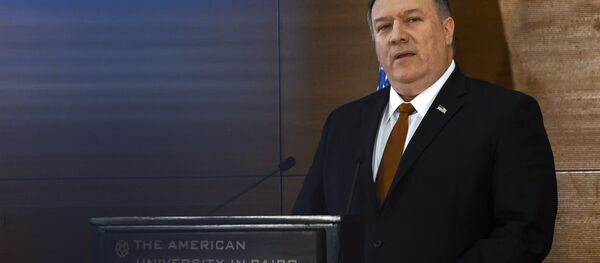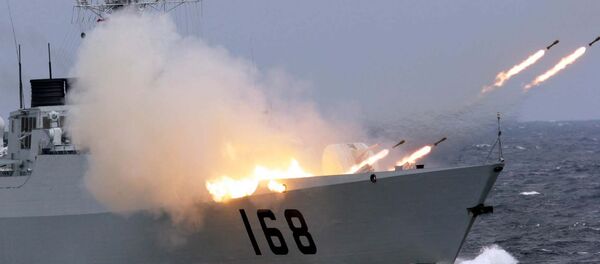White House National Security Adviser John Bolton called the treaty outdated and said it doesn't address the rising threat from China. An unnamed White House official, previously cited by Bloomberg, noted that Washington will suspend the treaty unless Moscow destroys its ground-launched cruise missiles, associated equipment and launchers that allegedly violate the accord by Saturday.
Radio Sputnik has talked about the US withdrawal from the Intermediate-Range Nuclear Forces Treaty with Götz Neuneck, head of the Interdisciplinary Research Group on Disarmament, Arms Control and Risk Technologies and who is also deputy director of the Institute for Peace Research and Security Policy at the University of Hamburg.
Sputnik: How significant is this US decision to withdraw from the treaty and why do you think it is coming at this time?
Götz Neuneck: These are two fundamental questions. I think Mr Bolton, as the new security adviser pushed the announcement to withdraw for several reasons; you have just quoted him that the treaty is outdated. If the treaty is outdated, then it is useful to listen to proposals on how to modernise the treaty. This has not yet happened. It is only a blame-game of accusations and both the US and Russia are not capable to solve these reciprocal allegations.
READ MORE: Russia Deploying Additional 9M729 Missiles as US About to Leave INF — Report
And this seems to show that both countries are not so much interested in preserving the framework of the INF Treaty, which is of outstanding importance for the Europeans and this is, I think, the situation. There is still time after suspension for six months to come clean, to find a reciprocal way to get out of this crisis, but indeed time is running out and we need a more flexible and more constructive way to deal with the whole issue.
Sputnik: Regarding the timing, it is very interesting to note that the violations that the US is basing this decision on have actually been an issue for many years. So why do you think it is now that they are saying this?
Transparency is fine, but we need reciprocal verification. We need reciprocal visits from American and Russian experts to the military assets where the missiles are located or will be located one day. And this didn't happen. So there is a lack of cooperation between the US and Russia on this and there is, of course, a lot of mistrust, but you do not solve a crisis if you only point with a finger at the other side.
Sputnik: It seems that Russia has also pointed the finger at the US side and said that they are not happy with certain military technology that the US has and [they] are also accusing the US of being in violation.
Götz Neuneck: Indeed, and this is a reason why I am speaking about reciprocal verification. Reciprocal means that the US also should provide data and could, for example, invite Russian inspectors to its missile defence sites. The Russian government says these so-called launch canisters could also be equipped with offensive missiles, which have longer range and a range which is forbidden by the INF Treaty.
READ MORE: US Has Full NATO Support on INF Withdrawal — Trump
Sputnik: Angela Merkel has said that if indeed the US decides to pull out of the treaty — and it looks like that is going to be the case — she will use that six-month period for further discussions. Do you think there is much hope that Germany, or other allies of the US, would be able to assert pressure on the United States to stay within the guidelines of that treaty?
READ MORE: Moscow: Russian Hypersonic Weapons Eliminate Threat From US Exit From INF Treaty
The views expressed in this article are solely those of Götz Neuneck and do not necessarily reflect the official position of Sputnik.








